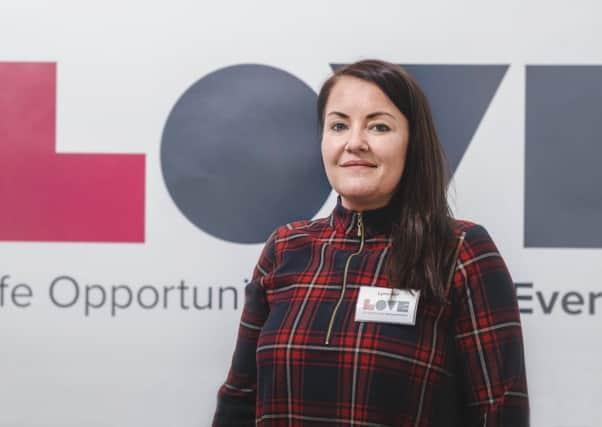Lynn Bell: Let’s not wait to manage a crisis before giving help where it is needed


This year’s theme, set by the Mental Health Foundation, is raising awareness about body image and how we think and feel about our bodies. With this choice the Foundation also aims to raise understanding of the role that all of us have in shaping an inclusive culture where we help others feel comfortable in their own skin.
The well-documented statistics on mental health problems as they impact children and young people in Scotland are stark and speak for themselves, with more individuals than ever seeking help. A contributor to this is the issue of body image.
Advertisement
Hide AdAdvertisement
Hide AdStudies have found that body dissatisfaction can start as young as six and lead to severe anxiety and depression. Taking into consideration that up to 70 per cent of girls aged between seven and 21 have concerns regarding their body image, this is one of the key issues facing children and young people in our country.
Dissatisfaction with one’s body does not only affect mental health but can cause serious harm to one’s physical health too.
Self-harm and eating disorders are intrinsically linked to poor body image, as well as to young people starting risky behaviours such as smoking, drug and alcohol abuse and unsafe sexual practices. Social media is considered a major contributory factor to a decline in mental wellbeing, especially among adolescent girls.
A recent report from the Scottish Government noted that many young girls in Scotland report being “unsatisfied with their physical appearance” as they tried to meet the unrealistic standards seen on social media.
The Scottish Government announcement that school pupils are to be coached on how to use social media healthily is therefore to be welcomed and more research into the impact of social media generally is clearly needed.
Mental health prevention and effective intervention such as this coaching can clearly have a significant impact on life chances, thereby benefiting not only the individual concerned but wider society and economy as a whole. The increase in the number of those coming forward with mental health problems generally is a welcome sign that the stigma around mental health is reducing.
However, this is clearly putting already stretched and under-resourced services under intense pressure.
Illustrating this, the latest figures on child and adolescent mental health service (CAMHS) waiting times in Scotland for the latest quarter, October to December 2018, indicate that more than a quarter of children and young people failed to start treatment within the Scottish Government’s 18-week waiting time target – itself still far too long to wait.
Advertisement
Hide AdAdvertisement
Hide AdThat is why we need all partners working in the sector, including the Scottish Government, NHS and local authorities, to refocus on prevention and early mental health intervention, seeking to reduce the burden on costly specialist CAMHS provision.
Last year, the Auditor General and Accounts Commission called for a ‘step change’ in the way the public sector responds to the mental health needs of children and young people. Like ourselves, it noted concerns that the current system is geared towards specialist care and responding to crisis, despite the Scottish Government strategy being focused on early intervention and prevention.
It further noted that youngsters also face a range of barriers to accessing services, with these highlighted as being patchy and varying considerably across the country
The cost-advantages of prevention and early intervention when it comes to mental health should most certainly not be underestimated. Educating children and young people on their mental health and wellbeing is critical, building up emotional resilience, as is the provision of school-based counselling services.
In Wales, where counselling services are guaranteed in all secondary schools, 88 per cent of children and young people who received it did not require any form of onward referral once counselling sessions had been completed. This therefore reduces the burden on stretched and costly CAMHS provision.
The Scottish Government has made recent welcome moves to address mental health problems which includes ensuring that every secondary school has access to a counselling service and that teachers are provided with the training needed to provide initial support to those with mental health problems. Much has been done, but there is still plenty to do to ensure Scotland’s young people and adults with body dissatisfaction can get the right care, in the right place and at the right time to prevent this problem escalating into more serious mental health disorders.
Lynn Bell is CEO of LOVE learning